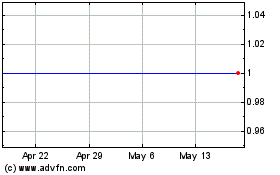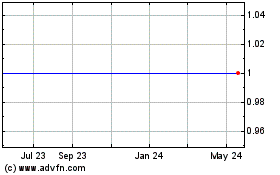Pluristem Therapeutics Inc. (Nasdaq: PSTI) (TASE: PSTI), a leading
biotechnology company developing novel cell therapies, today
announced positive final results from its innovative hematology
Phase I study to evaluate the safety and exploratory efficacy of
intramuscular injections of PLX-R18 in subjects with incomplete
hematopoietic recovery following HCT.
Incomplete hematopoietic recovery, or poor graft
function (PGF), is a life-threatening complication for patients
undergoing HCT. Current standard-of-care treatments do not result
in satisfactory blood counts in some or all blood cell lineages.
Consequently, patients are vulnerable to bleeding andrecurrent
infections, and require repeated costly transfusions of blood
products, which only provide short-term benefits.
Data collated 12 months post-treatment
with PLX-R18 demonstrate that:
- PLX-R18 was
well-tolerated with a favorable safety profile.
- Patients treated
with PLX-R18 showed an increase in all three blood cell types
compared to baseline with platelets (p<0.001), hemoglobin
(p=0.01) and neutrophils (p=0.15) levels increasing as early as 1
month following PLX-R18 administration and enduring up to 12 months
following treatment.
- Following
PLX-R18 treatment, the number of transfused units decreased from a
mean monthly number of 5.09 for platelets and 2.91 for red blood
cells at baseline to 0.55 for platelets (p=0.045) and 0 for red
blood cells (p=0.0005) at 12 months.
- The observed
annual mortality rate following PLX-R18 administration was 18%
compared to 29% in a cohort of allogeneic HCT recipients with
incomplete hematopoietic recovery, obtained from the Center for
International Blood and Marrow Transplant Research (CIBMTR)
registry, representing a similar patient population.1
PLX-R18 cell therapy was previously granted an
orphan drug designation by the FDA for the treatment of graft
failure and incomplete hematopoietic recovery following HCT and for
ARS. The final results of the Phase I study reinforce the
preclinical results of studies conducted under the FDA’s Animal
Rule, in collaboration with the U.S. National Institutes of Health
(NIH) and the U.S. Department of Defense (DOD), in which PLX-R18
was found to be effective in supporting the recovery of bone marrow
failure resulting from ARS. In addition, the FDA previously
cleared Pluristem’s IND application for PLX-R18 in the
treatment of ARS. The IND allows Pluristem to treat victims who may
have been acutely exposed to high dose radiation due to a nuclear
attack or accident.
“PLX-R18 aims to improve the standard of care by
stimulating the regenerative potential of the bone marrow, and we
are gratified by results that I believe show we are on track to do
so,” said Pluristem Chief Executive Officer and President Yaky
Yanay. “A quick and effective way to improve the hematological
profile of sick patients—resulting in faster recovery and decreased
transfusions—would be a game-changer for the field, and we will
continue to explore its clinical applications. The FDA’s
recognition of PLX-R18’s potential to treat ARS is also
significant. This treatment potentially carries great significance
for current events in Ukraine and Europe, providing hope for
treatment in the case of a nuclear event. We are proud of this
product line, which might hold the key to promoting wellbeing,
improving the standard of care, and possibly saving lives.”
About
Pluristem
Pluristem is pushing the boundaries of science and engineering
to produce cell-based products for various industries on a global
scale. The Company’s cell manufacturing platform is a patented and
validated 3D cell expansion system, which is uniquely precise,
cost-effective, and consistent from batch to batch. Pluristem
currently operates in the regenerative medicine and food tech
sectors and aims to establish partnerships that leverage the
Company’s cell-based technology platform for additional
applications. Pluristem’s placental cell-based therapies advance
the field of regenerative medicine, with potentially groundbreaking
applications for treating damaged muscle, hematology deficiencies,
and inflammation. The Company also recently launched a landmark
collaboration with Israeli food giant Tnuva to produce cultured
food products with sustainability as a guiding principle.
About the Study and PLX-R18
This Phase I study was designed as a
multi-center, open-label, dose-escalating study to evaluate the
safety of intramuscular (IM) injections of PLX-R18 cells in 21
patients with incomplete hematopoietic recovery/PGF persisting for
at least three months after HCT. The follow-up period for safety
was 12 months. Patients in the study were enrolled into one of
three chronological treatment groups receiving two administrations,
1 week apart, of PLX-R18 at a dose of 1 million PLX-R18 cells/kg
(n=3), 2 million PLX-R18 cells/kg (n=6), or 4 million PLX-R18
cells/kg (n=12). The primary endpoint was safety, and it was
assessed throughout the study, and specifically at the end of each
cohort, by an external DSMB. In addition, exploratory efficacy
variables were collected, including changes in blood counts,
transfusion frequency, and a shift from transfusion dependence to
transfusion independence.
The PLX-R18 cell therapy product secretes a
combination of cytokines, including IL-6, IL-8, SCF, G-CSF, MCP1,
and Gro-β, and is designed to stimulate the regeneration of damaged
bone marrow to produce blood cells lineages (white, red, and
platelets). As efficacy studies are not permitted in humans for the
ARS indication, pre-clinical studies were conducted via the FDA
animal rule pathway to evaluate Pluristem’s PLX-R18 as a medical
countermeasure for that indication. These studies were conducted
and funded by the U.S. government (NIH, DOD).
About the
CIBMTR
The Center for International Blood and
Marrow Transplant Research is a nonprofit research collaboration
between the National Marrow Donor Program (NMDP)/Be The Match, in
Minneapolis, and the Medical College of Wisconsin, in Milwaukee.
The CIBMTR collaborates with the global scientific community to
increase survival and enrich the quality of life for patients. The
CIBMTR facilitates critical observational and interventional
research through scientific and statistical expertise, a large
network of centers, and a unique database of long-term clinical
data for more than 600,000 people who have received HCT and other
cellular therapies. Learn more at cibmtr.org or follow the CIBMTR
on Facebook, LinkedIn, or on Twitter.
From the CIBMTR registry, Pluristem selected
patients aged ≥18 years at time of first allogeneic HCT for a
hematologic malignancy in the United States between January 2017
and June 2020 with characteristics as similar as possible to the
patients treated with PLX-R18 in the Phase I study. Such values
include full donor chimerism at ≤30 days post-HCT, disease in
remission at 100 days post-HCT, and no active Grade III/IV acute
GVHD or severe chronic GVHD or CMV infection ≤30 days post-HCT.
These patients were classified as PGF based on platelet count
<50 × 109 cells/L by day 100 post-HCT. Mortality rates for this
group were then compared to a comparable subset of the Phase I
(n=17) study who had platelet count <50 × 109 cells/L at study
baseline and were <300 days post-HCT.
Safe Harbor Statement
This press release contains express or implied
forward-looking statements within the Private Securities Litigation
Reform Act of 1995 and other U.S. Federal securities laws. For
example, Pluristem is using forward-looking statements when it
discusses the potential safety, efficacy and benefits of PLX-R18
and that it aims to provide the standard of care and is on track to
do so and the potential significance of PLX-R18 in case of a
nuclear event. These forward-looking statements and their
implications are based on the current expectations of Pluristem’s
management only and are subject to a number of factors and
uncertainties that could cause actual results to differ materially
from those described in the forward-looking statements. The
following factors, among others, could cause actual results to
differ materially from those described in the forward-looking
statements: changes in technology and market requirements;
Pluristem may encounter delays or obstacles in launching and/or
successfully completing its clinical trials; Pluristem’s products
may not be approved by regulatory agencies, Pluristem’s technology
may not be validated as it progresses further and its methods may
not be accepted by the scientific community; Pluristem may be
unable to retain or attract key employees whose knowledge is
essential to the development of its products; unforeseen scientific
difficulties may develop with Pluristem’s process; Pluristem’s
products may wind up being more expensive than it anticipates;
results in the laboratory may not translate to equally good results
in real clinical settings; results of preclinical studies may not
correlate with the results of human clinical trials; Pluristem’s
patents may not be sufficient; Pluristem’s products may harm
recipients; changes in legislation may adversely impact Pluristem;
inability to timely develop and introduce new technologies,
products and applications; loss of market share and pressure on
pricing resulting from competition, which could cause the actual
results or performance of Pluristem to differ materially from those
contemplated in such forward-looking statements. Except as
otherwise required by law, Pluristem undertakes no obligation to
publicly release any revisions to these forward-looking statements
to reflect events or circumstances after the date hereof or to
reflect the occurrence of unanticipated events. For a more detailed
description of the risks and uncertainties affecting Pluristem,
reference is made to Pluristem's reports filed from time to time
with the Securities and Exchange Commission.
Contacts
Investors:investor.relations@pluristem.com
U.S. Press:Meira Feinman, Miller Ink
meira@miller-ink.com
Tara DiMaio, Miller Ink tara.dimaio@miller-ink.com
Israel Press:Shachar Yental, Gitam Porter
Novelli shacharye@gitam.co.il
____________________________________1 When compared to data
obtained from the CIBMTR registry during a 12-month interval from
first observation. First observation was defined as the day of
first PLX-R18 treatment for the Phase I patients and as day 100
post-HCT for the CIBMTR population. See About the CIBMTR for more
details.
Pluristem Therapeutics (NASDAQ:PSTI)
Historical Stock Chart
From Dec 2024 to Jan 2025

Pluristem Therapeutics (NASDAQ:PSTI)
Historical Stock Chart
From Jan 2024 to Jan 2025
